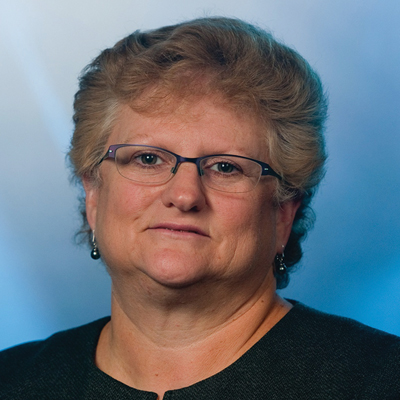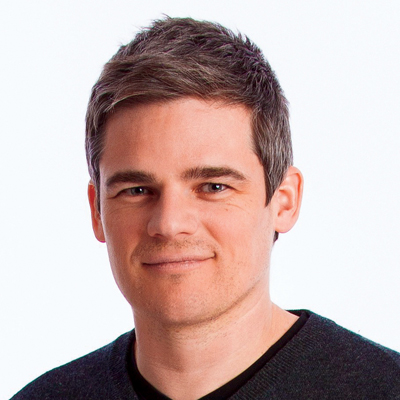Insurtechs
Insurtech Focus
Health care insurtech carriers reported losses in the first nine months of 2019. Oscar’s loss, however, was a sharp improvement over the loss from the same period a year ago.
Four health care insurtech carriers reported net losses totaling $46.2 million in the first nine months of 2019, compared with net losses of $25.4 million in the same period a year earlier, according to the most recent financial statements from BestLink.
While losses worsened at Clover, Devoted Health and Bright Health, Oscar reported a substantially smaller net loss in the nine-month period, the statements showed.
The four insurtech carriers posted an increase in net premiums earned, totaling about $888.1 million in the first nine months, compared with $799.3 million in the same period a year earlier.
“As with any startup, it takes time to build scale, and that's especially important in health insurance where scale is key for provider negotiations and administrative costs,” said Sally Rosen, a senior director at AM Best.
Startups also often have to weather periods of losses before arriving at the point of profitability, she said.

As with any startup, it takes time to build scale, and that’s especially important in health insurance where scale is key for provider negotiations and administrative costs.
Sally Rosen
AM Best
Oscar
When Oscar launched in 2012, many in the industry looked at it with “acute curiosity and incumbents didn't know whether they should take us seriously or not,” said co-founder Mario Schlosser.
“By 2016-2017, we moved into a phase of ridicule with high medical loss ratios and uncertainty in the individual market,” he said. After Oscar began stabilizing its medical loss ratio and became a market innovator of technological member engagement tools “their view of us began to change, and now I think we're seen more as a collaborator where we can learn from incumbents and vice versa,” Schlosser said.
Oscar Insurance Group reported a net loss of $754,000 in the first nine months of 2019, but that was an improvement over the same period a year before, when the company reported a loss of $2.4 million.
Oscar's net loss for the full year 2018 totaled $39.3 million, down sharply from a net loss of $111 million in 2017 and a loss of $184 million in 2016.
Net premiums earned for the first nine months of 2019 totaled $345.3 million, compared with $484.6 million in the same period of 2018. For the full year 2018, net premiums earned totaled $647.6 million, up from $203.5 million the year before.
Oscar Insurance Group is currently made up of 11 group members.
Broken down by state, Oscar's biggest market in 2018 was Texas, with $383.6 million in direct premiums written, followed by New York, with $298.8 million in direct premiums written. In Tennessee, the company reported direct premiums written of $93.3 million, in Ohio $87 million and in New Jersey $38.6 million.
The insurtech got its start after former President Barack Obama signed the Patient Protection and Affordable Care Act into law on March 23, 2010. The New York-based company uses technology and data to sell individual health insurance plans directly and through health insurance marketplaces.
It was the brainchild of three Harvard Business School classmates. Schlosser, Kevin Nazemi and Joshua Kushner recognized the struggles individuals and families face with complicated hospital billing systems.
When Schlosser's wife became pregnant with their first child, they had a difficult time navigating the health care system and became frustrated with the lack of data in the industry. So he and his partners decided to create a technology-driven health plan focused on redesigning insurance geared toward the user experience.
“We set our sights on the individual market, which at the time was plagued with much uncertainty,” Schlosser said. “But we knew the individual market would allow us to go directly to the end user, attract members, generate word of mouth and get more engagement.”
Schlosser points to two things that differentiate Oscar from traditional health plans. “Our technology that's used to drive member engagement and the fact that we build all of that technology in-house,” he said.
The company has one of the highest member engagement numbers in the industry. About 41% of members' first visits to a health care provider are routed through Oscar Health's mobile app, website or concierge team, Schlosser said.
Through its relationship with Cigna, Oscar will now also focus on providing commercial health solutions to small businesses the companies announced in January.
They said they plan to share risk equally under a reinsurance agreement for solutions offered through this strategic partnership. Pending regulatory approvals, the companies will launch in select markets in 2020 and plan to expand the partnership over time.
Last year, Oscar announced plans to return to North Texas to sell individual and family plans on the Affordable Care Act exchange, grow its membership in the individual and small group markets, and expand into 12 new geographic markets and six states—its largest expansion since its founding.
“That will bring us into 26 markets in 15 states,” Schlosser said. Last year, Oscar began selling Medicare Advantage in Houston and New York City.
Clover
Clover Insurance Group reported a net loss of $26.5 million in the first nine months of 2019, compared with a net loss of $18.7 million in the same period of 2018. The company reported a net loss of $40.9 million in 2018 and $21.5 million in 2017.
Net premiums earned totaled $347.6 million through the first nine months of 2019, up from $223.4 million a year earlier. For the full year 2018, net premiums earned totaled $290 million, up from $267.2 million in 2017.
Clover Insurance Group has two members: Clover HMO of New Jersey and Clover Insurance Co.
The bulk of Clover's business is in New Jersey, where it wrote $356.5 million in direct premiums written in 2018, up from $267.6 million in 2017. It also reported direct premiums written in Texas, Georgia, Illinois, Pennsylvania, Hawaii, Ohio, California, Missouri and Maryland.
Clover Health, created by former CarePoint Health founder Vivek Garipalli in 2014, uses data analytics and preventive care to improve health insurance for seniors while offering a less expensive alternative to Medicare.
The founder and his team created proprietary software that makes business rules and machine learning built on large datasets directly actionable at the point of primary care, said Andrew Toy, president and chief technology officer.
He said the San Francisco-based Medicare Advantage startup uses a proprietary technology platform that collects and analyzes health and behavioral data to recognize patients' needs and then surfaces those needs to doctors at the point of care.
“Our members have deep relationships with their primary care physicians, so that's a great place to continuously deliver preventative, personalized and data-driven care,” Toy said. “That's why we're so focused on our Clover Assistant software platform, designed to help physicians provide the absolute best primary care.”
He said tools like that allow Clover to coordinate and prioritize clinical care, reduce hospital admissions and improve members' health.
Clover Health said in January membership grew by 37% in 2019, outpacing the five-year Medicare Advantage industry average of 7% year-over-year growth. Clover said much of the growth in membership comes from New Jersey.
Toy said Clover plans to continue expanding its Medicare Advantage membership—a market that, according to reports, is projected to grow to more than $500 billion in annual revenue by 2025.
The Medicare Advantage insurer recently broke new ground by launching Clover Therapeutics, a research subsidiary dedicated to developing treatments for elderly patients with chronic diseases. The subsidiary is currently partnering with biotechnology company Genentech to study the genomic factors of eye diseases including macular degeneration.

We set our sights on the individual market, which at the time was plagued with much uncertainty. But we knew the individual market would allow us to go directly to the end user, attract members, generate word of mouth and get more engagement.
Mario Schlosser
Oscar
Devoted Health
Devoted Health Group reported a net loss of $9.7 million in the first nine months of 2019, compared with a loss of $125,000 in the same period of 2018. For the full year 2018, the net loss totaled $1 million. Net premiums earned totaled $30.9 million in the first nine months of 2019, compared with nil in the same period a year prior.
Devoted Health Group, based in Waltham, Mass., was founded in 2017 and began enrolling seniors in Florida in 2018. The company is made up of three group members, Devoted Health Insurance Co., Devoted Health Plan of Florida and Devoted Health Plan of Texas.
Devoted Health, a “payvidor” that integrates being both a payer and care provider, was the brainchild of Ed and Todd Park.
Ed Park is the former chief technology officer and chief operating officer of Athenahealth. Todd Park co-founded Athenahealth and Castlight Health and served as Obama's chief technology officer.
Bright Health
Bright Health Insurance Group reported a net loss of $9.3 million in the first nine months of 2019, compared with a net loss of $4.2 million in the same period in 2018. For the full year 2018, the company reported a net loss of $19.5 million, compared with $17.5 million in 2017.
Bright Health reported net premiums earned of $164.3 million in the 2019 nine-month period, compared with $91.3 million in the same period of 2018.
For the full year 2018, Bright Health reported net premiums earned of $117 million, up from $36.2 million in 2017.
Minneapolis-based Bright Health's biggest market was Colorado, where the company reported direct premiums written of $104.2 million in 2018.
Other markets include Arizona with direct premiums written of $11.6 million and Alabama with direct premiums written of $5 million.
Bright Health Insurance Group consists of 11 group members.
Bright Health in January said it had signed an agreement to acquire California-based Universal Care health plan, which does business as Brand New Day.
Bright Health said the transaction will combine Brand New Day's local expertise and specialized clinical programs with Bright Health's nationally recognized leadership, next-generation technology and intelligence platform, and innovative personalized approach to health care. The transaction is subject to regulatory approval and expected to close in 2020.
The company said in July 2019 that it would begin offering its Health Plan Care Partner Model in 13 new markets across seven states in 2020, plus expanded product offerings in every existing market. The company said this expansion brings Bright Health Plan's footprint to a total of 22 markets in 12 states.
“In just four years, we've grown from serving consumers in our pilot market of Colorado to serving tens of thousands of members across six states.
This substantial growth shows that consumers are hungry for a new health care model that is simple, personal and more affordable,” Bright Health CEO Bob Sheehy said in a statement at the time.
“We've been able to meet this demand because our Health Plan Care Partner Model allows us to scale quickly and effectively, and our significant expansion in 2020 is further validation of that.”



























